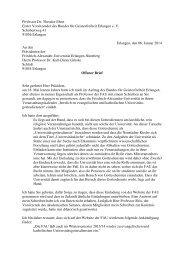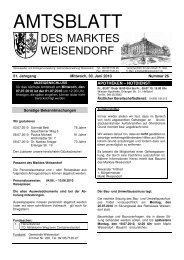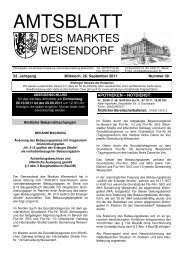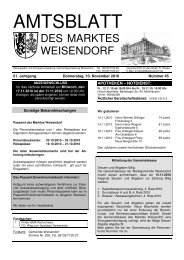Globalisierung - Realität und Ideologie.pdf - FEN
Globalisierung - Realität und Ideologie.pdf - FEN
Globalisierung - Realität und Ideologie.pdf - FEN
Sie wollen auch ein ePaper? Erhöhen Sie die Reichweite Ihrer Titel.
YUMPU macht aus Druck-PDFs automatisch weboptimierte ePaper, die Google liebt.
2. Transparency<br />
The transparency of democratic decisions and processes is a prerequisite for democracy. The higher the<br />
level of decisions, the more demanding and more necessary this prerequisite is. There is a new need for<br />
transparency on the global level.<br />
20<br />
Citizens can support the cause of transparency by endeavouring to obtain information as individuals and as<br />
groups in civil society.<br />
Transparency also requires free and independent media.<br />
a) Civil society organisations play a crucial role in increasing the transparency of global decision-making<br />
processes. Formal and comprehensive mechanisms of civil society participation and of access to information<br />
have to be established in all international organisations, including the WTO, the IMF and the World Bank.<br />
b) Freedom of the press and freedom of expression are essential for the defence and development of<br />
democracy. They contribute to the establishment of transparency, counteract authoritarian trends and correct<br />
excesses, negligence and management errors within states. The media gather information and shape it. This<br />
mediation function between governance at all levels and societies is a highly responsible one.<br />
Democracy is currently experiencing a crisis of growth and adaptation to the new contemporary world<br />
realities. The causes of this crisis are:<br />
* the inadequacy of the mechanisms of democracy to handle the effects of globalisation;<br />
* the emergence, in the context of nascent globalisation, of social communities who fear they will not be<br />
able to adapt to the new conditions and are sensitive to populist and national-populist messages;<br />
* the weakening of the credibility and, indeed, of the efficiency of democracy’s traditional mechanisms<br />
because of the lack of transparency, electoralisation and commercialisation of political action.<br />
The mass media have an immense responsibility and an essential role to play in respect of all these three<br />
causes.<br />
Democracy with a market economy and private property made it possible for free media to become a real<br />
power. Consequently it is indispensable that the media should behave in a transparent and accountable way.<br />
There is a need to recognise the fact that the activity of the press is in the public interest and must, therefore,<br />
be carried out in accordance with professional norms, deontological standards and within a legal democratic<br />
framework.<br />
3. Participation<br />
a) The participation of civil society in global governance expanded dramatically during the past decade.<br />
Thanks to their high level of commitment and their expertise, trade unions and other social partners, on the<br />
one hand, and NGOs, on the other, were able to play a key role in the cycle of world conferences.<br />
Therefore, no restrictions must be placed on the consultative status of NGOs at the UN that is currently<br />
<strong>und</strong>er review by the UN Secretary-General’s Panel of Eminent Persons on United Nations Relations with<br />
Civil Society. Instead, formal consultative relations between non-profit NGOs and the UN need to be<br />
strengthened and expanded to all institutions of the UN system, including the UN General Assembly and all<br />
its specialized agencies.<br />
However, NGOs shouldn’t be overburdened by excessive expectations. They influence global decisionmaking<br />
by dint of their experience, analysis and advocacy, but they are not the political decision-makers, as<br />
democratically elected parliaments and governments are. Civil society participation must be complementary<br />
to, not a substitute for, the role of parliaments. Participatory democracy goes hand in hand with<br />
representative democracy, and should include both the political and the social experience. People cannot be<br />
citizens in the political life and servants in the economic life.<br />
States and global institutions alone cannot finance the development needs of the developing countries. More<br />
intensive cooperation with the private sector is needed to induce private investment. Global corporations<br />
have responsibilities as formulated in the UN Global Compact. However, public-private partnerships that
















